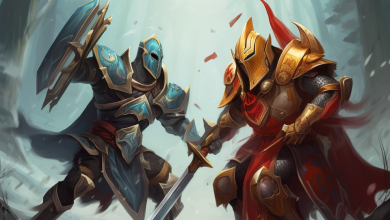The impact of streaming and esports on traditional sports leagues and organizations

In recent years, streaming and esports have exploded in popularity and have had a significant impact on traditional sports leagues and organizations.
Streaming refers to the practice of watching and listening to digital media, such as videos and music, on the internet in real-time. Esports, short for electronic sports, refer to competitive video gaming. Both streaming and esports have grown rapidly, with millions of people around the world tuning in to watch streams and esports tournaments.
One way that streaming and esports have impacted traditional sports leagues is through the competition for viewers and sponsors. With the rise of streaming platforms like Twitch and YouTube, and the growth of esports leagues and tournaments, traditional sports leagues have had to adapt and compete for the attention of audiences and sponsors. This has led to a number of changes in the way traditional sports leagues operate, such as the adoption of new technologies, the creation of new league structures, and the development of new revenue streams.
Another way that streaming and esports have impacted traditional sports leagues is through the way in which games are broadcast and consumed. In the past, traditional sports leagues relied heavily on television broadcasters to reach their audience. However, with the rise of streaming, many traditional sports leagues have started to explore streaming their games online, either through their own platforms or through partnerships with streaming services. This has allowed them to reach a wider audience and offer more flexibility in terms of how and when games can be watched.
Esports have also had a significant impact on traditional sports leagues and organizations. Many traditional sports leagues have started to adopt elements of esports, such as the creation of esports leagues or the incorporation of video game versions of their sports into their official competitions. For example, the NBA has created the NBA 2K League, a professional esports league featuring teams owned by NBA franchises. Similarly, FIFA, the governing body for soccer, has organized the FIFA eWorld Cup, an esports competition featuring the popular soccer video game FIFA.
The growth of streaming and esports has also led to new opportunities for professional athletes. Many traditional athletes have started to stream their training sessions and other aspects of their lives on platforms like Twitch and YouTube, giving fans a behind-the-scenes look at their lives and providing a new source of income for the athletes. In addition, some traditional athletes have also started to compete in esports, either as individuals or as part of esports teams.
Overall, the impact of streaming and esports on traditional sports leagues and organizations has been significant. These new forms of entertainment have forced traditional sports leagues to adapt and compete for viewers and sponsors, and have created new opportunities for professional athletes. As streaming and esports continue to grow in popularity, it will be interesting to see how traditional sports leagues and organizations continue to evolve and adapt to these changes.




